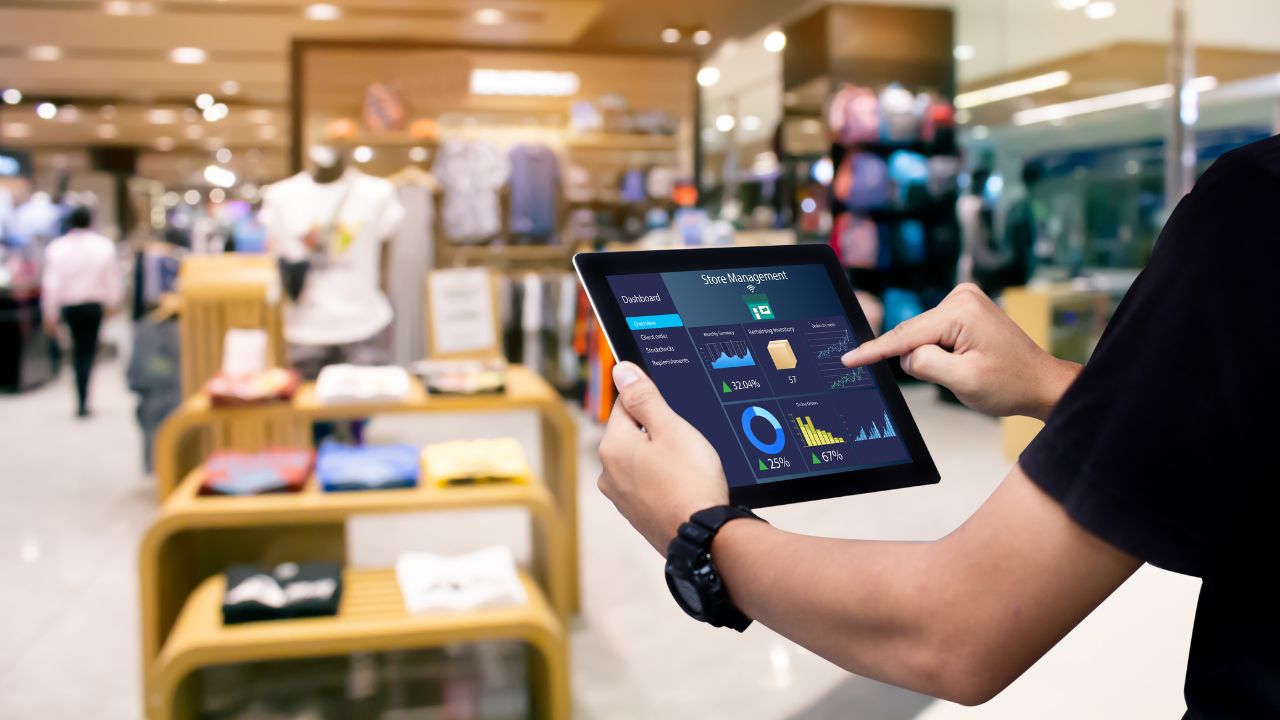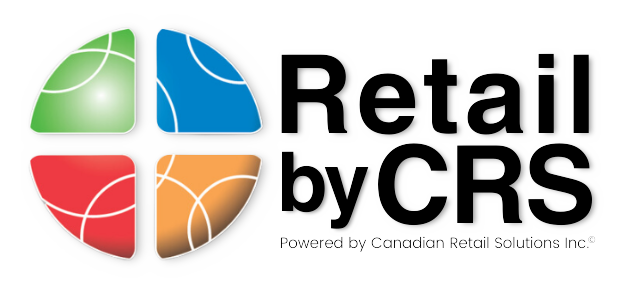You’re at a point where you think you’ve narrowed down the point of sale solution you want to use for your retail business. You’ve combed through the features and the price looks right for your budget…the hard part is almost over! BEFORE you commit and sign on the dotted line, there are 5 key areas you need to pay attention to in order to make sure it’s the right solution for your retail business.
1. Functionality Within the Price You THINK You’re Getting
Always keep in mind that software providers, or service providers of any kind, typically promote their lowest, or mid, price point in their most customer facing marketing channels. While these low prices may seem highly attractive to a retailer, you are often giving up some critical business functions and it may not always seem so obvious as to what exactly you’re giving up.
Always make sure to ask the questions and find out EXACTLY what comes included in the price point you’re looking at. Get a breakdown of the included features AND a breakdown of the features you won’t be getting but would have to add-on for an additional fee if you want to use it. When you have a clear idea of what the features are that come with an additional cost, you can also make a decision on whether or not those features are important to the future of your business. Knowing this will help determine whether or not the solution ACTUALLY fits within your budget, and you aren’t faced with unexpected additional costs down the road.

2. Inventory Management Features That Will Ease Operations
Inventory management is arguably one of the most important functions of a GOOD point of sale system. A proper inventory management feature will help streamline your operations in a variety of different ways from auto-calculating stock levels based on a combination of purchase order receipts, transfers, adjustments, and sales activity to tracking and reporting on data that will help you better understand and manage your business.
It’s important to really understand the inventory management capabilities of the POS solution you’re considering against the needs of your retail business. For instance, in a lot of cases, having the option to add in custom user defined fields to products in the system is something a retailer will both want and need to keep track of the information that matters most to their particular business. If a retailer is working with a financial planner, having the capability to add in a custom class field is typically essential for their services.
Another good example of an important feature you’d want to keep in mind is the ability to automate your inventory management, even to a small degree. In some cases, having your system automatically detect and reorder inventory based on the criteria you set may be an important feature to your business model. In other cases, having the system simply alert you on low stock levels based on a minimum and maximum level that you set may be more in line with your operations.
Within the inventory management umbrella often comes the ability to create, manage and maintain purchase orders within the system. For most retailers, having this capability directly within the POS system is crucial to maintaining accurate inventory levels and keeping well-defined reports for when they’re needed. Keep an eye on this functionality within the point of sale system you’re considering to see how that flows with the inventory management system.

3. Omnichannel Capabilities That Provide a Seamless Customer Experience
In today’s world of retail, the newer generations that are beginning to dominate the consumer market are putting heavy value on the omnichannel experience. They want to be able to shop flawlessly between online channels and in-store locations, and are often veered away from brands that don’t offer that. In order to thrive in today’s retail environment, while future-proofing your business at the same time, the omnichannel capability of your point of sale system is critical!
A strong omnichannel feature offers the capability to seamlessly integrate inventory, stock levels, loyalty programs and customer profiles between their online store and brick-and-mortar location(s). Taking it one step further, a strong omnichannel experience also includes the capability to integrate into other channels such as social media selling platforms and marketplaces.
In order to optimize your chances of success for your retail business, make sure that the point of sale solution you are leaning towards offers this functionality, or at least has some kind of third-party partner that is compatible with their program. But always keep in mind – for third-party partner integrations, there is always an additional fee from that partner. When you’re looking for certain features that don’t come included in the pricing you expected, these third-party integrations can begin to get quite costly. Some solutions, in comparison, do come with these features standard so exploring all of your options is never a bad idea!

4. Customer Management Tools That Go Beyond the Surface
When it comes to data collection, your customer data is by far one of the most valuable data sets you can collect for the growth of your retail business (when utilized correctly, that is). When it comes down to it, your customers fuel the success of your business – without customers, you simply don’t have a business. You can stock your store with what you think is the latest and greatest in the market, but if nobody’s buying it, then that store won’t last very long.
With that being said, knowing and understanding WHO your customers are and WHAT they are buying should be a massive part of your business model…and that all starts with good customer management tools and features in your POS.
Surface level data is easy – that’s stuff like name, location and contact information. Most, if not all, point of sale systems should be able to do that. Going beyond that surface level is digging deeper into the customer’s buying behavior and determining how to target that customer with the right product at the right time. It’s about understanding what brings them back through your doors and how to improve the customer experience for them.
When considering a POS system for your business, make sure you check on the customer management tools and what they have to offer. Do they track customer buying behavior and report on it in a way that you can understand and make better business decisions? Does it allow for custom user defined fields so you can track information that may be important to your particular business, such as a favorite color or the customer’s birthday? Are there options for loyalty programs built-in to the system or a third-party integration partner that will allow you to add one on for an additional fee?

5. Reporting on Insights You Actually NEED in Order to SUCCEED
Reports and analytics are a pillar to ANY kind of business out there, especially retail. With the right insights into your business data, you gain knowledge of exactly what strategies are working, what items are selling, which customers are buying, what is bringing in repeat business and what may be hindering the customer experience. All of this information is key to making the right decisions for your business in order to maximize sales and profits.
There isn’t much of an industry standard when it comes to the reporting features that come included in a POS system, which makes this part a little difficult when it comes down to decision-making time. Each system offers their own version of a standard reporting package, and will typically have add-on options for more in-depth reporting for additional fees. When looking at the reporting capabilities offered in the POS system you’re considering for your retail business, it’s important to know what insights are particularly important for YOUR specific business model and if those insights are available in the reporting features included.
If they aren’t an included reporting feature, is it available as an add-on for an additional fee? Is there the ability to create a custom report to get the data insights you need? Yes, general sales reports are extremely valuable, but how in-depth can you break those sales reports down? Are you able to break down sales volume by item, size, or department and is that important information to know for your business?
Something to keep in mind when considering the reporting features of a POS system – the deeper you can dive into your data, the better it will be for your business in the long run.

These key areas are some of the most important things you should consider when you’re considering your next point of sale system. Of course, this isn’t everything you need to consider. Budget is a factor, of course, but don’t let it weigh down the decision you make too heavily, as the right POS system will only benefit your business’ bottom line and eventually pay for itself. You also want to pay attention to other important features that you may need for your business, like the ability to track and manage vendors or set up promotions with complicated conditions such as buying a specific product and receiving another specific product for a discounted price.
Yes – this does make for quite a complicated decision. You are not alone in that feeling! Your point of sale system is the backbone to your retail business and it can only function within the capabilities of its design. It’s often overwhelming when you’re faced with that decision of whether or not the design is a match for your specific business needs. With contracts in place, or large investment sums due up front, making the wrong decision feels like it’s simply not an option.
Luckily, you don’t have to do this alone! As experts in this field, you can trust that our 30+ years of experience in this industry has led us to make partnerships with POS providers that we KNOW will tick off all the boxes for your business needs! We completely simplify the process for you by narrowing down the options to the industry leaders in point of sale, getting to know your specific retail business in a free discovery call, and guiding you towards the RIGHT POS for your business.
As a full solutions provider, we can also help you source everything else you might need as well, from station hardware to third-party programs and even business planning! We offer continued peace of mind even after you get started on your point of sale solution through continued support as Your Retail Operations Partner, so you’re NEVER alone in your retail journey!
Get started with our team of experts by booking a free, no-obligation discovery call and learn more about what we can do for you! We exist to make retailers better.


